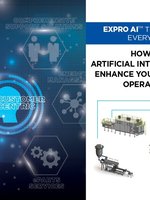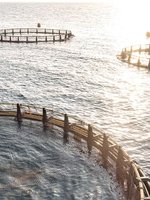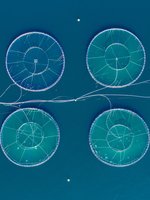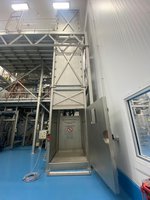Headline news

Wilbur-Ellis Nutrition acquired by private equity fund
The transaction covers the full Nutrition business of Wilbur-Ellis, including the Rangen, Ametza, Emmert, Oxy-Gon, Oxy-Gold, and Oxy-Block product lines, as well as proprietary premixes, ingredient blends and sourcing services.
MarinTrust implements standard for marine ingredients
Since May 1, 2025, all facility audits are now carried out exclusively against Factory Standard, Version 3.

ISFNF opens call for abstracts
The 22nd International Symposium on Fish Nutrition and Feeding (ISFNF XXII) will take place in Darwin, Australia, from May 18-21, 2026.


Norway expands fish feed monitoring to include emerging contaminants in 2024
The 2024 annual report showed low levels of heavy metals, some PFAS in starter feeds, and traces of pesticides, while the additive ethoxyquin was absent.
Planktonic secures $2.9 million to drive global expansion of cryoplankton hatchery feed
The new funding will strengthen production, expand facilities in Norway, and support Planktonic’s international growth in key marine species.

Copepod producer triples capacity with new expanded facility
The new production line introduces innovative microalgae cultivation technology that enhances sustainability while maintaining the highest quality standards.

Norwegian salmon producers: Strong biology, weaker prices in Q2 2025
Major salmon producers posted record harvest volumes and strong biological performance in Q2 2025, but prices remained under pressure from high global supply growth.

Reports

FAO and Chilean experts present guide for aquaculture adaptation to climate change
Norway expands fish feed monitoring to include emerging contaminants in 2024
Report charts path for shrimp industry to reduce carbon footprint
Report confirms no harmful substances in Norwegian farmed fish in 2024
Event News

Seafood Expo Global launches aquaculture pavilion in 2026 Barcelona edition
LACQUA25 unveils academic program
ISFNF opens call for abstracts
SustainED gathered over 130 participants to drive innovation in shrimp aquaculture in Ecuador
Commodity News

MarinTrust implements standard for marine ingredients
Non-GMO soy supply tightens
New trade protocol reopens Indonesian market for Australian rendered products
USDA forecasts U.S. corn production up and soybean production down from 2024
Featured Video
Customized Fish Feed for Bluefin Tuna and Hamachi
To meet global demand for Bluefin tuna while protecting the species, many seafood processors rely on fish farms. The major challenge lies in the fish feed. Together with Japanese company Nissui, Bühler has developed a tuna feed enabling sustainable, economic farming.
 More info about this video
More info about this video
Downstream news
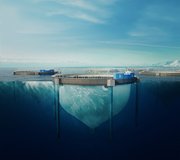
Scotland approves first semi-closed containment fish farm
Scottish government green lights proposals from Loch Long Salmon to deliver innovative technology that is already being used in Norway, Canada and the Faroe Islands.
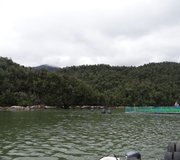
Cooke Aquaculture sanctioned with farm closures in Chile
The Superintendencia del Medio Ambiente (SMA) sanctioned Cooke Aquaculture in Aysén with the closure of two farms for environmental violations, a decision the company will appeal.

MSD Animal Health unveils next-generation sea lice, welfare and biomass monitoring technology
The company launched a new vision technology, an AI-powered system that provides real-time data on fish health, biomass, and sea lice to help salmon farmers optimize production and improve animal welfare.
Manolin introduces modeling upgrade
New harvest forecasting and sea lice treatment recommender tools support salmon cage-level recommendations with task-dependent accuracy of 85-97%.

Tidal launches AI-powered lice control system to protect salmon
Tidal Lice Control uses AI to remove lice safely and autonomously, improving salmon welfare and reducing costs.

DNV launches AI-powered compliance solution to transform global aquaculture
DNV’s Smarter Compliance automates aquaculture reporting, reducing costs, risks, and workload while boosting control and sustainability.

Editor’s Picks
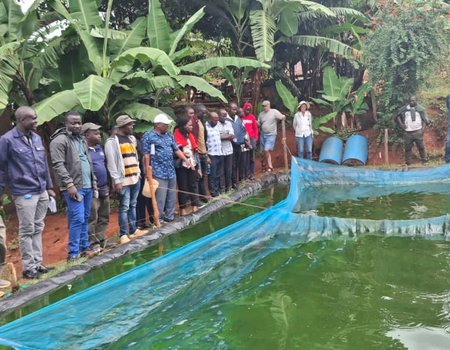
Empowering Africa's aquaculture sector through training, workshops and organizational models
Governments, research institutions, and international organizations are stepping up efforts to strengthen the aquaculture industry in Africa through targeted training, collaborative workshops, and innovative organizational models.
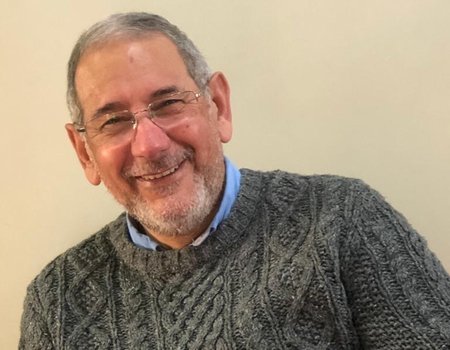
Dr. Patricio Dantagnan and his vision for a more precise and sustainable aquaculture
Dr. Patricio Dantagnan analyzes the future of fish feed in modern aquaculture and the need to move toward sustainable, precision-based solutions.
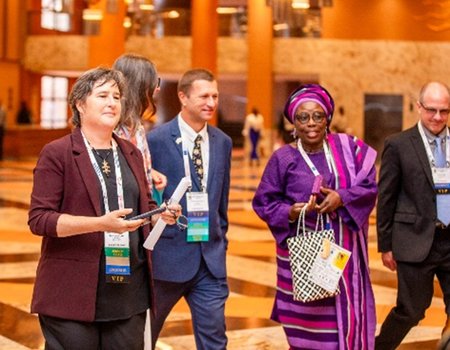
World Aquaculture Safari 2025: Certainly a success
The conference broke previous records, with 1,847 registered attendees from 79 countries and 77 booths, where brisk business was conducted.
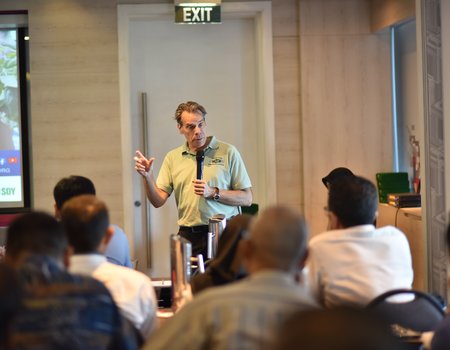
Feeding for the future: Science-driven functional feeds in aquaculture
At the 2025 Indonesian Aquafeed Conference, Dominique Bureau emphasized that evidence-based functional nutrition can be a key tool to improve fish health, production efficiency, and farm profitability in aquaculture.
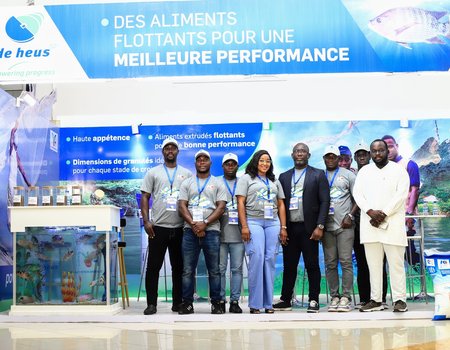
West Africa feed update: A new era for growth
Faced with a widening gap between fish supply and demand, and a heavy reliance on imports, nations like Côte d'Ivoire, Ghana, and Nigeria are implementing strategic programs to bolster their domestic aquaculture industries.
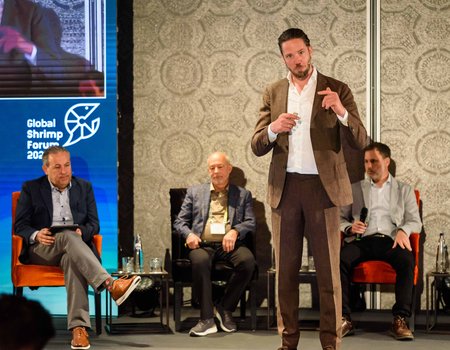
Global Shrimp Forum 2025: Navigating tariffs, sustainability and the future
The Global Shrimp Forum 2025 in Utrecht will address the impact of U.S. tariffs on global shrimp trade, China's consumption capacity, and diverse industry topics like traceability, animal welfare, and byproduct utilization.
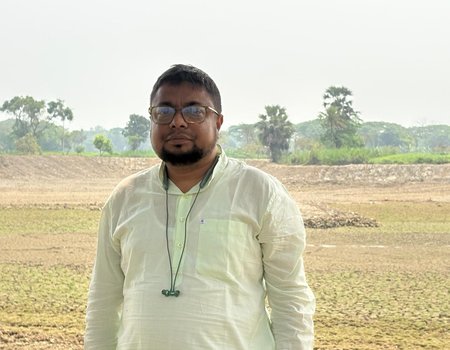
Bangladesh aquafeed sector: Feed innovation and industry expansion
Bangladesh is seeing its aquaculture sector rapidly expand to meet increasing demand for fish, with aquafeed production evolving to use more advanced methods and ingredients, despite facing challenges in energy supply, skilled labor, and investment access.
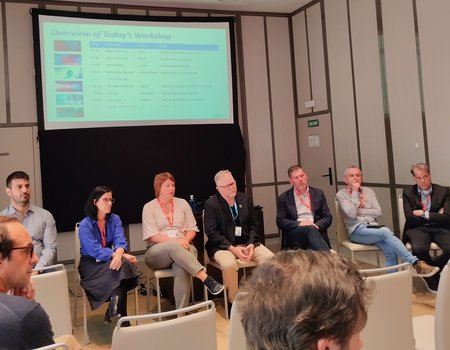
Precision nutrition in aquaculture: Unlocking growth through smarter feeding strategies
Precision nutrition in aquaculture, tailoring nutrient delivery to species-specific needs using advanced models, ingredient insights, and digital tools, offers a path to improved growth, feed efficiency, and sustainability, as emphasized at IFFO’s 2025 Members’ Meeting.
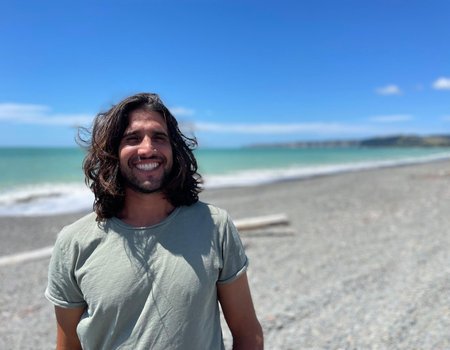
The evolving science of aquafeed: Insights from CSIRO's Artur Rombenso
In this interview, Artur Rombenso, senior research scientist at CSIRO, explores the future of aquaculture nutrition, emphasizing the shift toward precision feeding, sustainable ingredient sourcing, and integrated innovation to overcome industry challenges and enhance global food security.
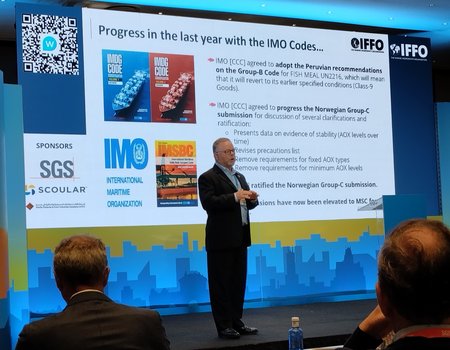
IFFO Members' Meeting: New rules simplify fishmeal transport
At the IFFO 2025 Members’ Meeting, Brett Glencross outlined key regulatory updates on fishmeal shipping and antioxidant use, and detailed efforts to improve contaminant testing in marine oils to ensure global safety and compliance standards.

New trade protocol reopens Indonesian market for Australian rendered products
Report details Indonesian shrimp farming trends and challenges
Five South Asian countries launch project to empower small-scale fish farmers
Vietnam shrimp sales to EU climb in 2025
India's shrimp exports to U.S. hit by 50% tariff

New CO₂ calculator quantifies the impact of sustainable soy
Turkish salmon drives the country’s aquaculture growth in global markets
Scottish salmon survival rates hit a record high
EUMOFA report reveals shifts in EU fishmeal and fish oil markets
China becomes fastest-growing market for Norwegian salmon in July

Studies find no negative impact from salmon farms on wild salmon in British Columbia
Bipartisan bill introduced in U.S. Congress to advance open ocean aquaculture
Omega Protein urges scientific review before menhaden fishery cuts
U.S. imposes higher antidumping duties on Vietnamese shrimp exporters
Canada funds $7.2 million microbial protein aquafeed project

U.S. tariffs to hit Brazilian tilapia industry hard
Salmon Plan 2050 progress with concrete proposals for the sustainable development of salmon farming in the south of Chile
Partnership launch sustainable aquaculture investment fund for Latin America
Chilean presidential candidates present proposals for salmon farming at Salmon Summit 2025
Chilean researchers to assess novel antiviral technology in salmonids

NARA signs deal with Côte d’Ivoire to boost animal feed and rendering industries
Victory Farms joins improver program by ASC
De Heus opens three feed mills in Uganda, India and Kenya
ASC to strengthen Ghana’s farmed seafood sector
Insect meal as aquafeed in Africa: It’s a matter of scale

Tasmanian government pauses salmon industry expansion
New trade protocol reopens Indonesian market for Australian rendered products
New Zealand government invests in smarter aquafeed to power king salmon industry
New Zealand salmon exports soar past $200 million in 2024
New Zealand’s farmer becomes first in adopting BioMar’s sustainable feed in king salmon
New Products





